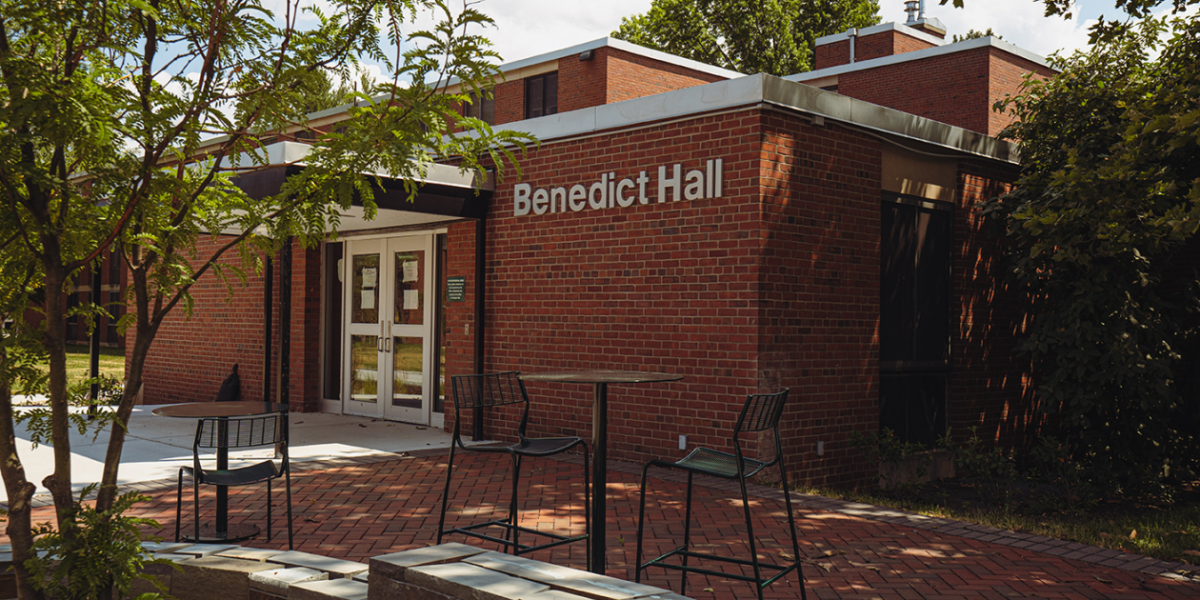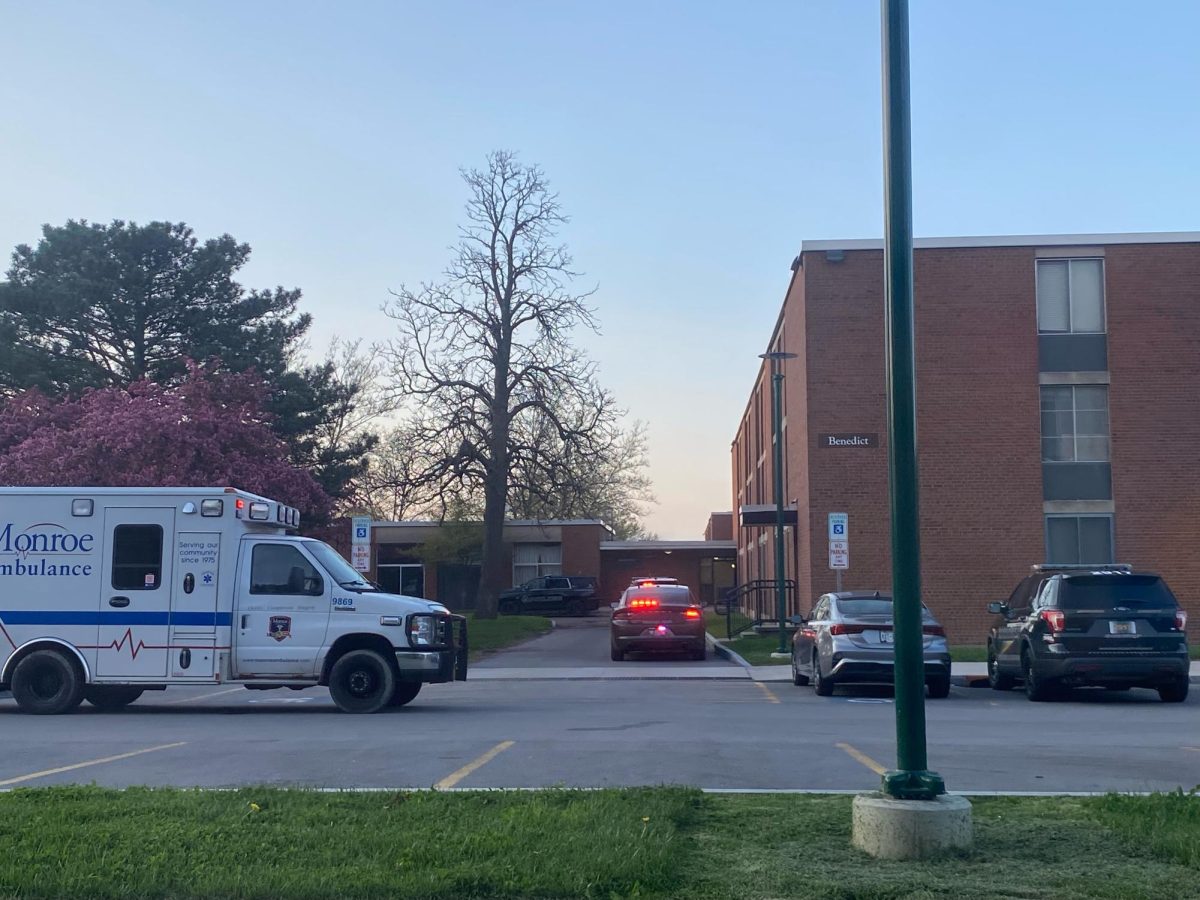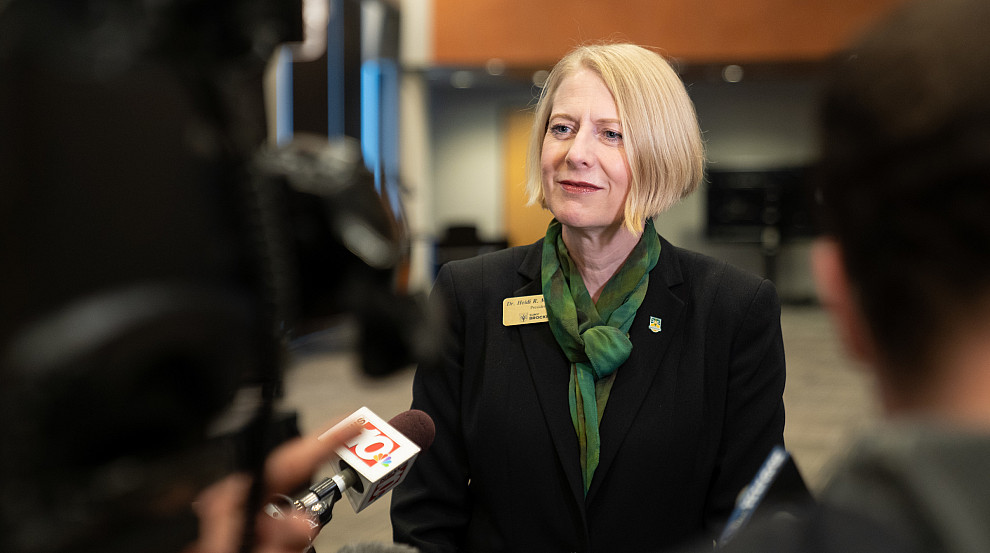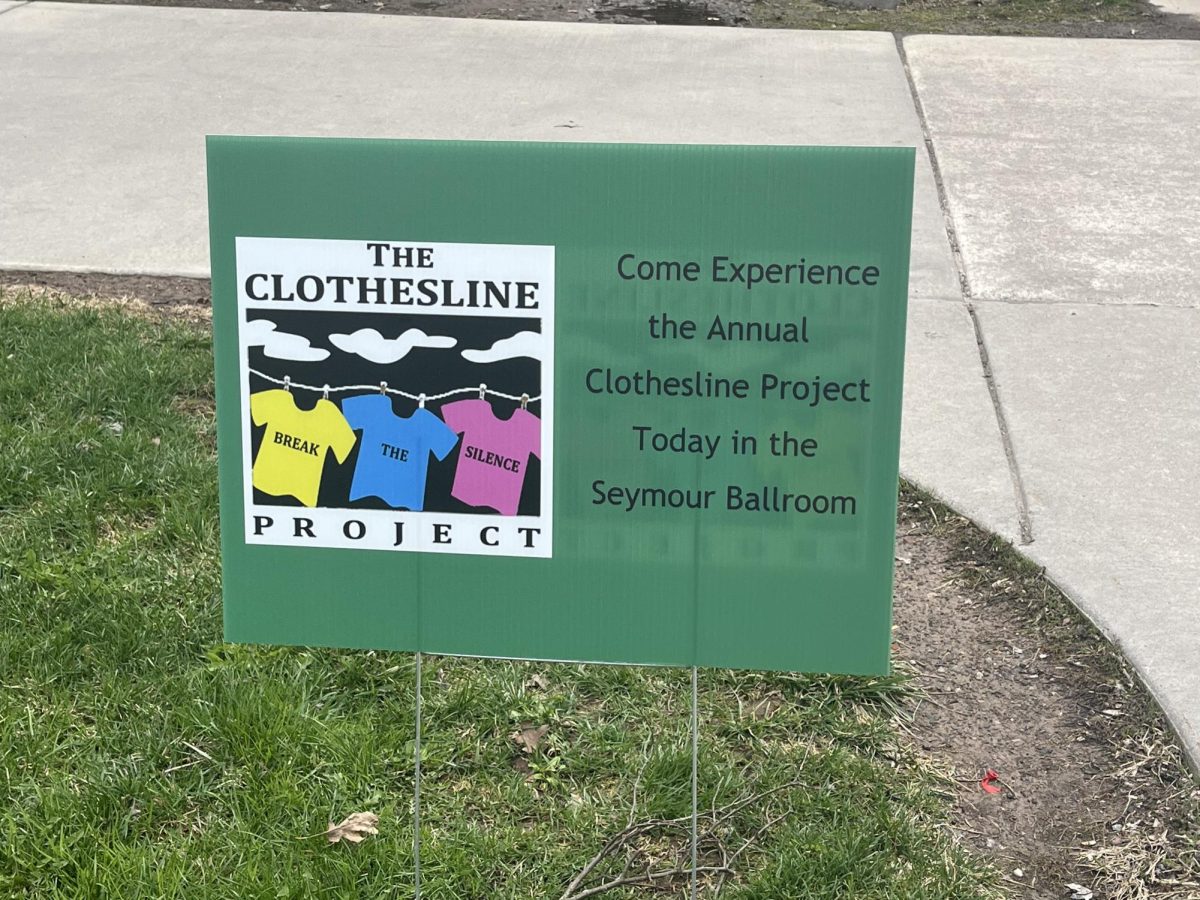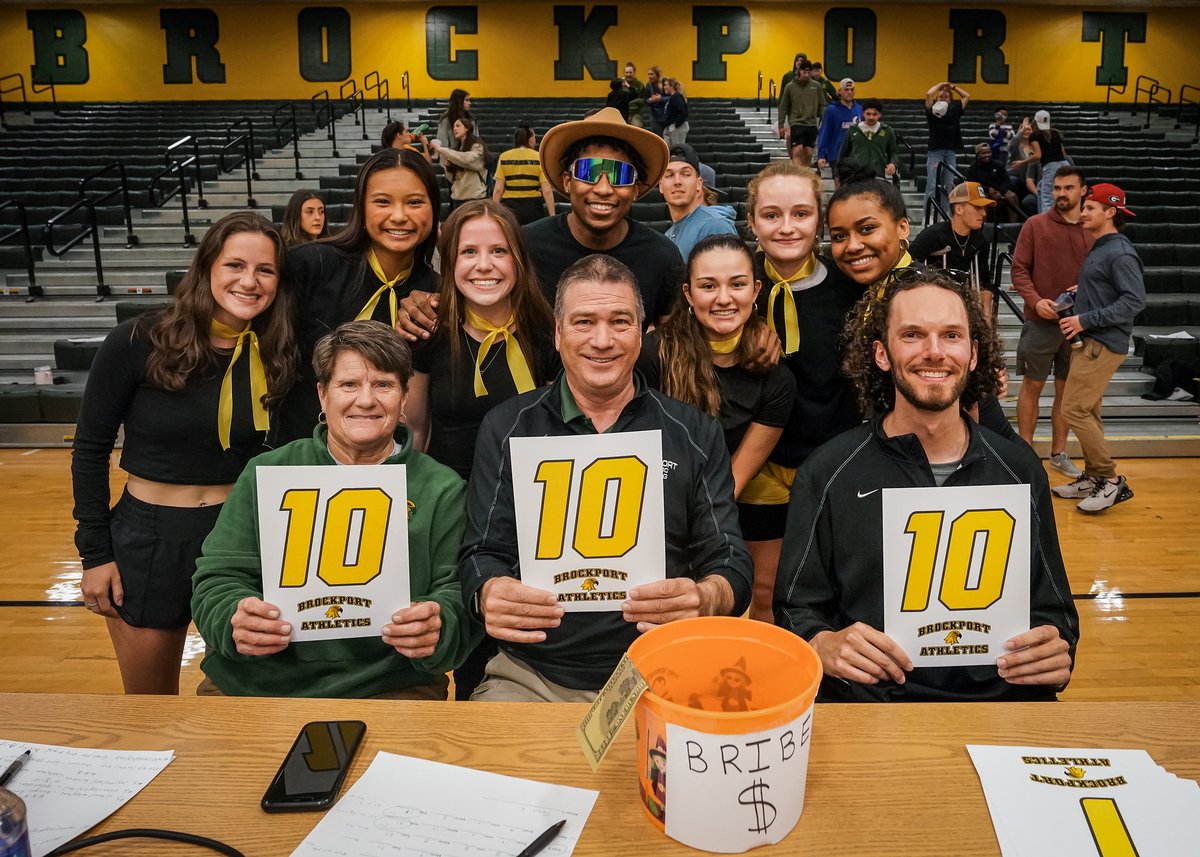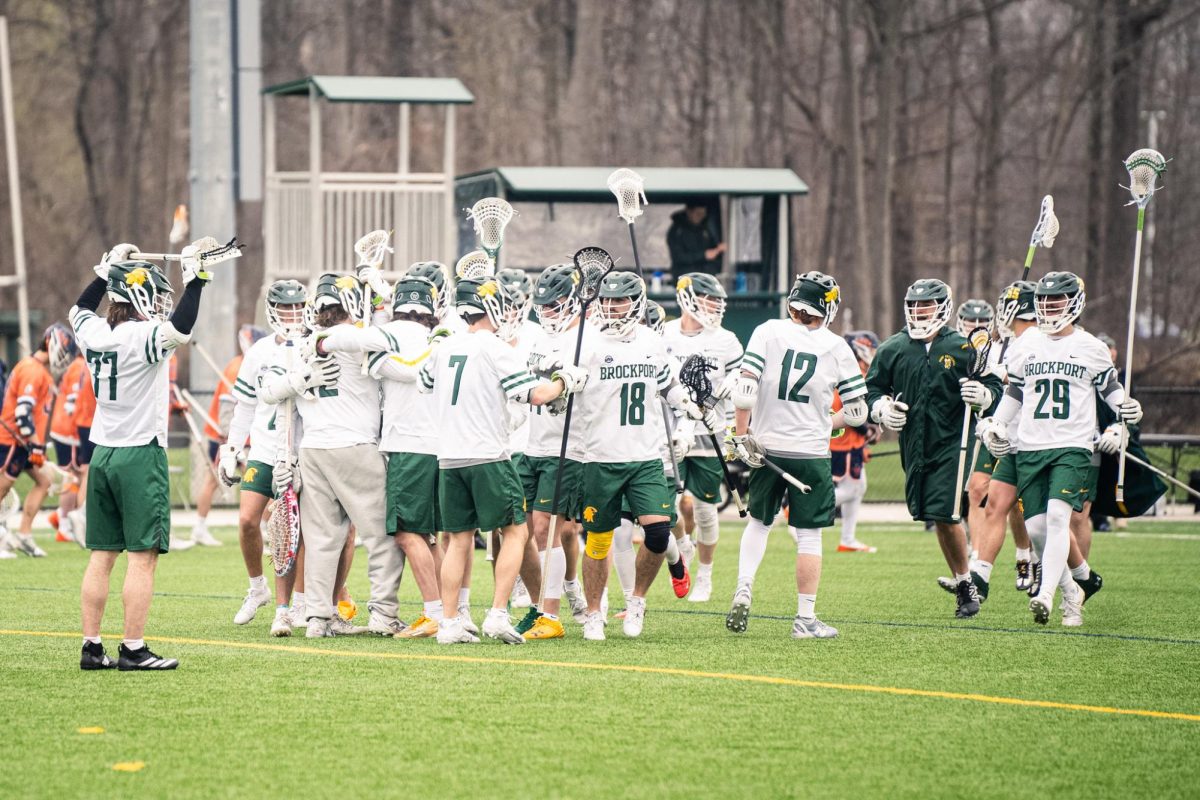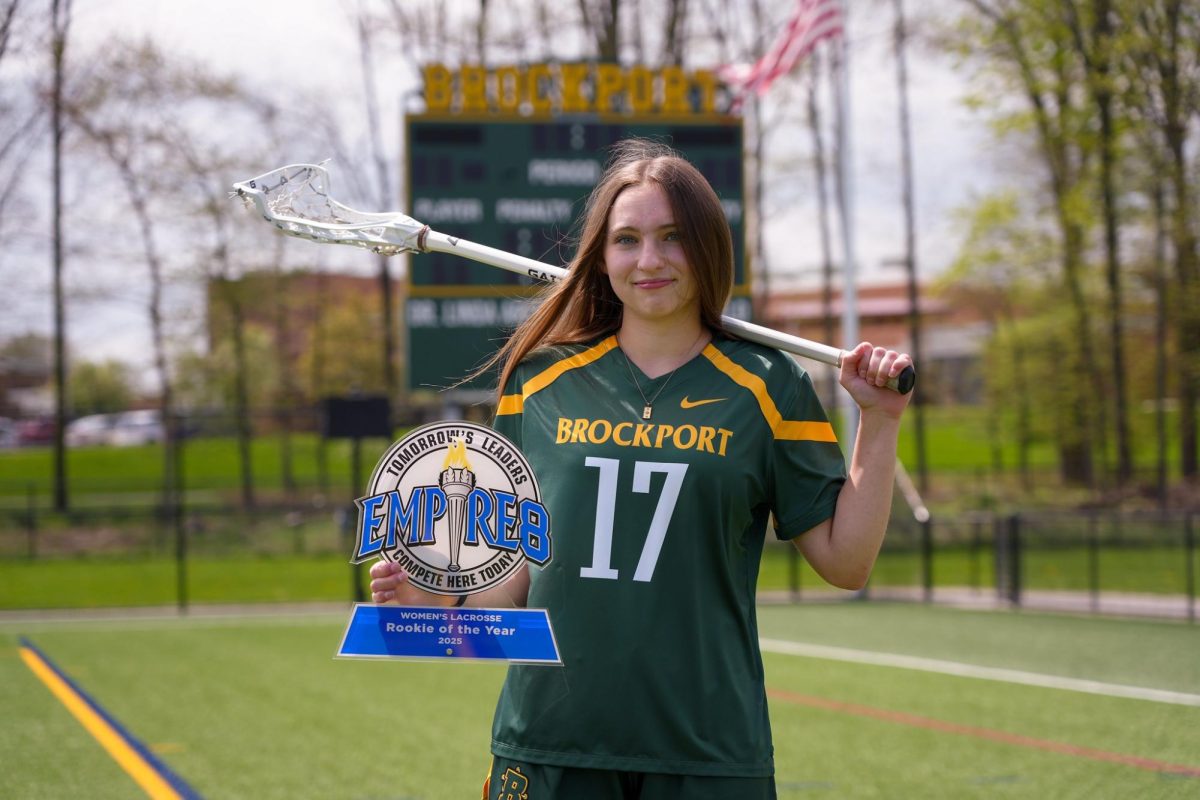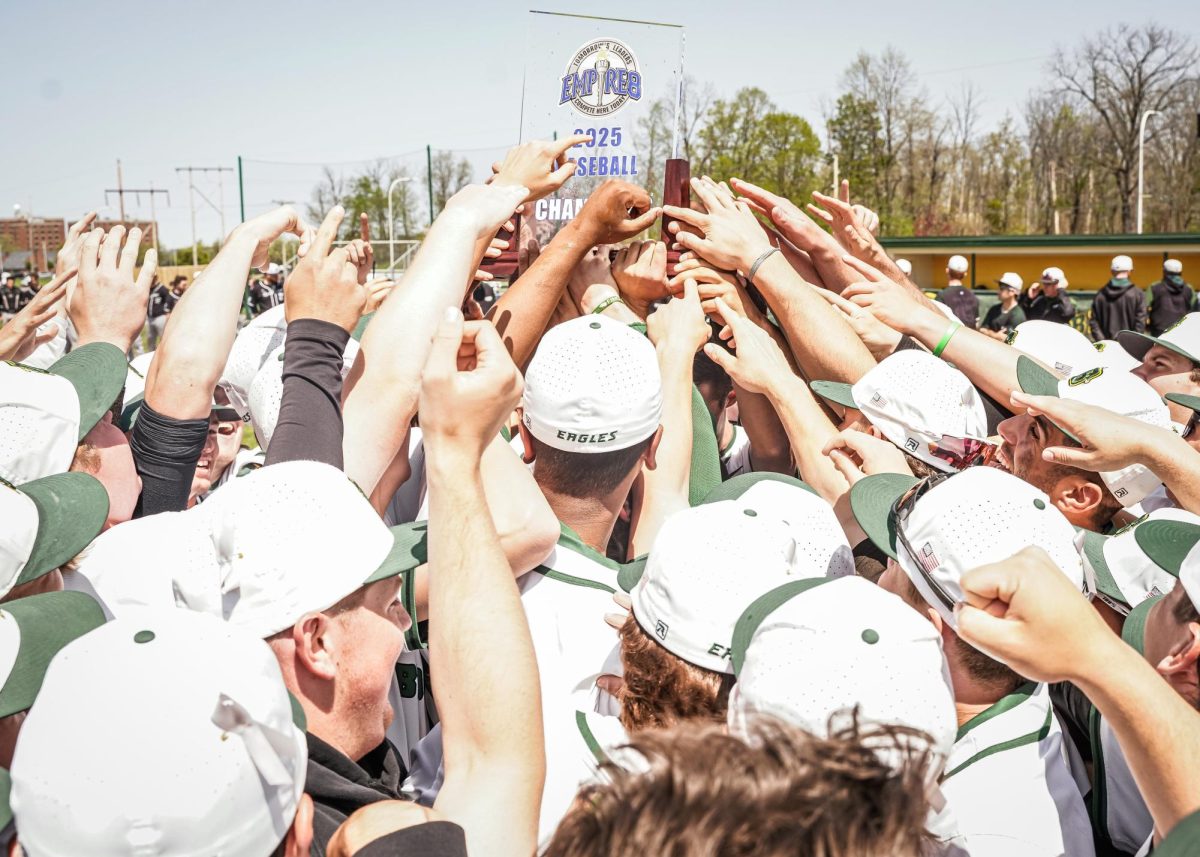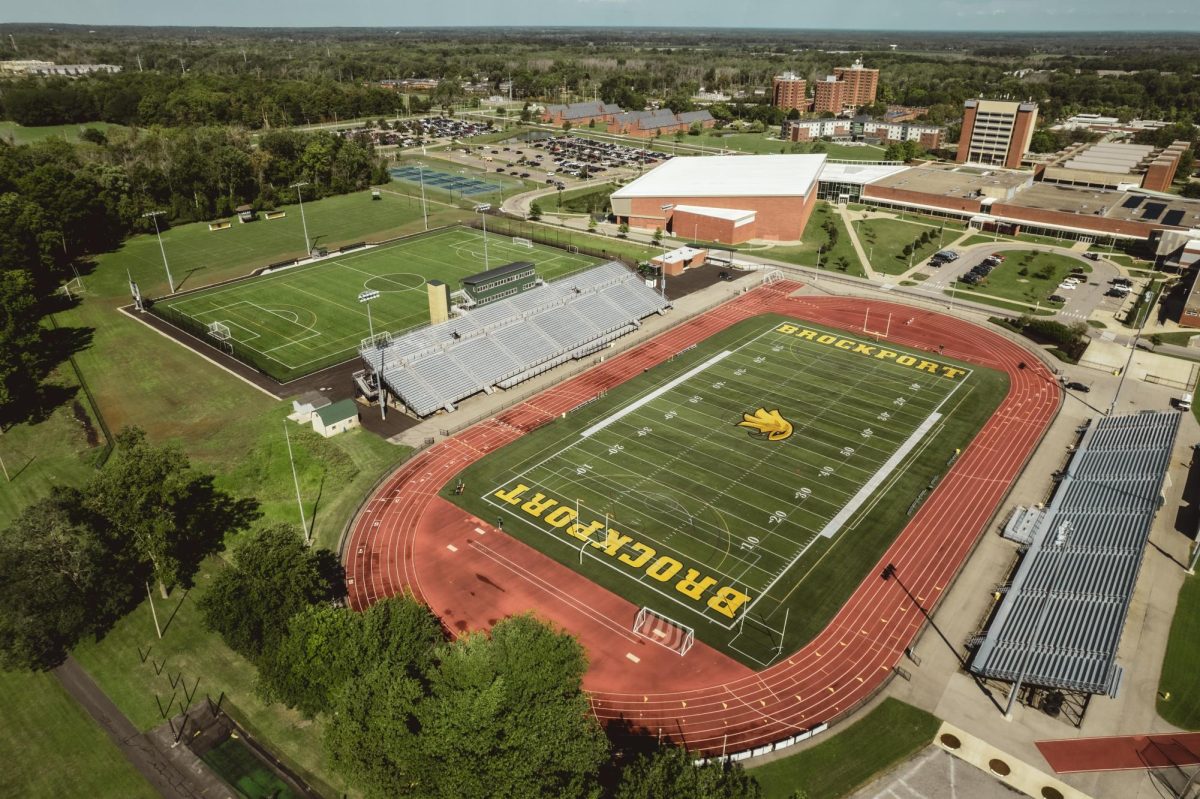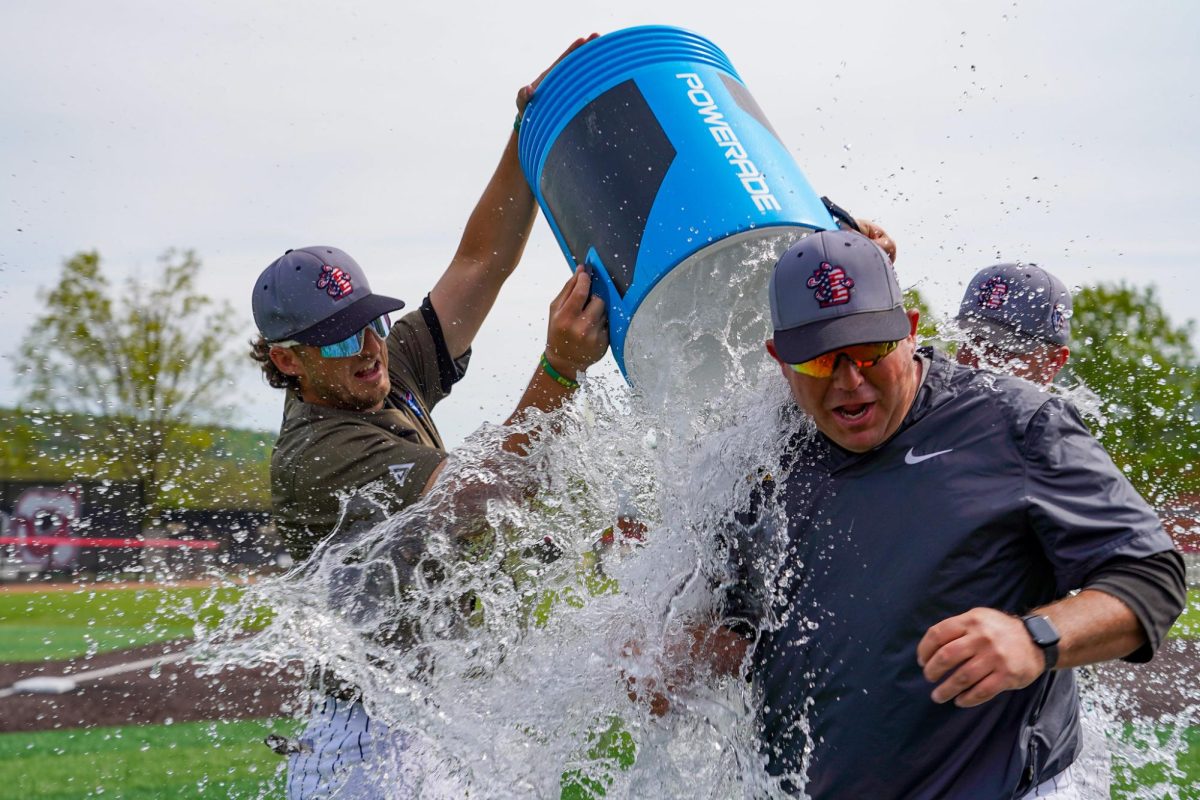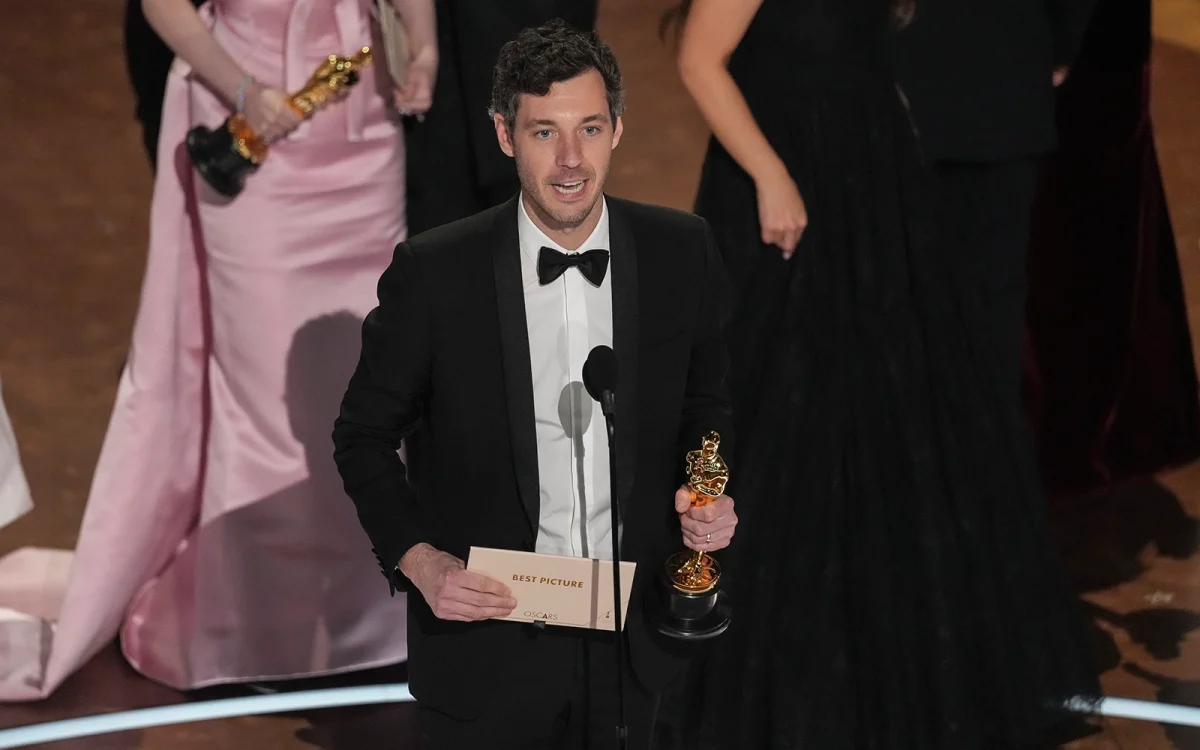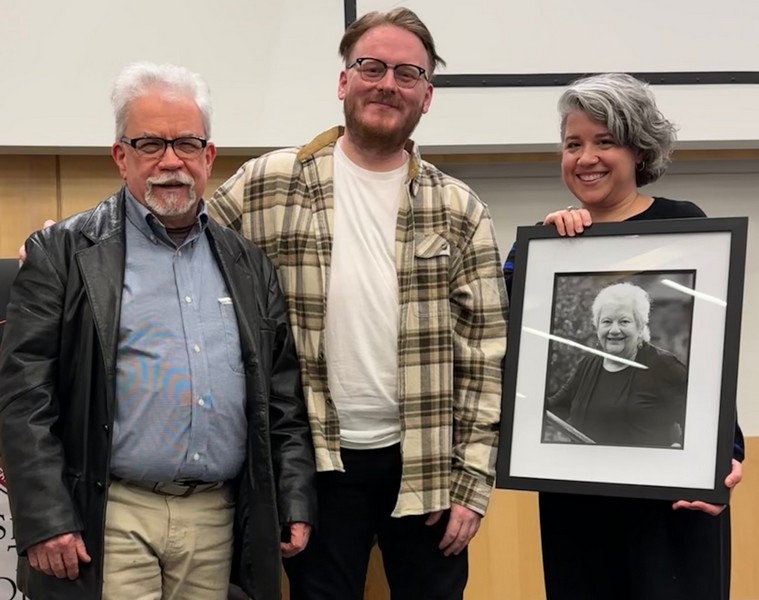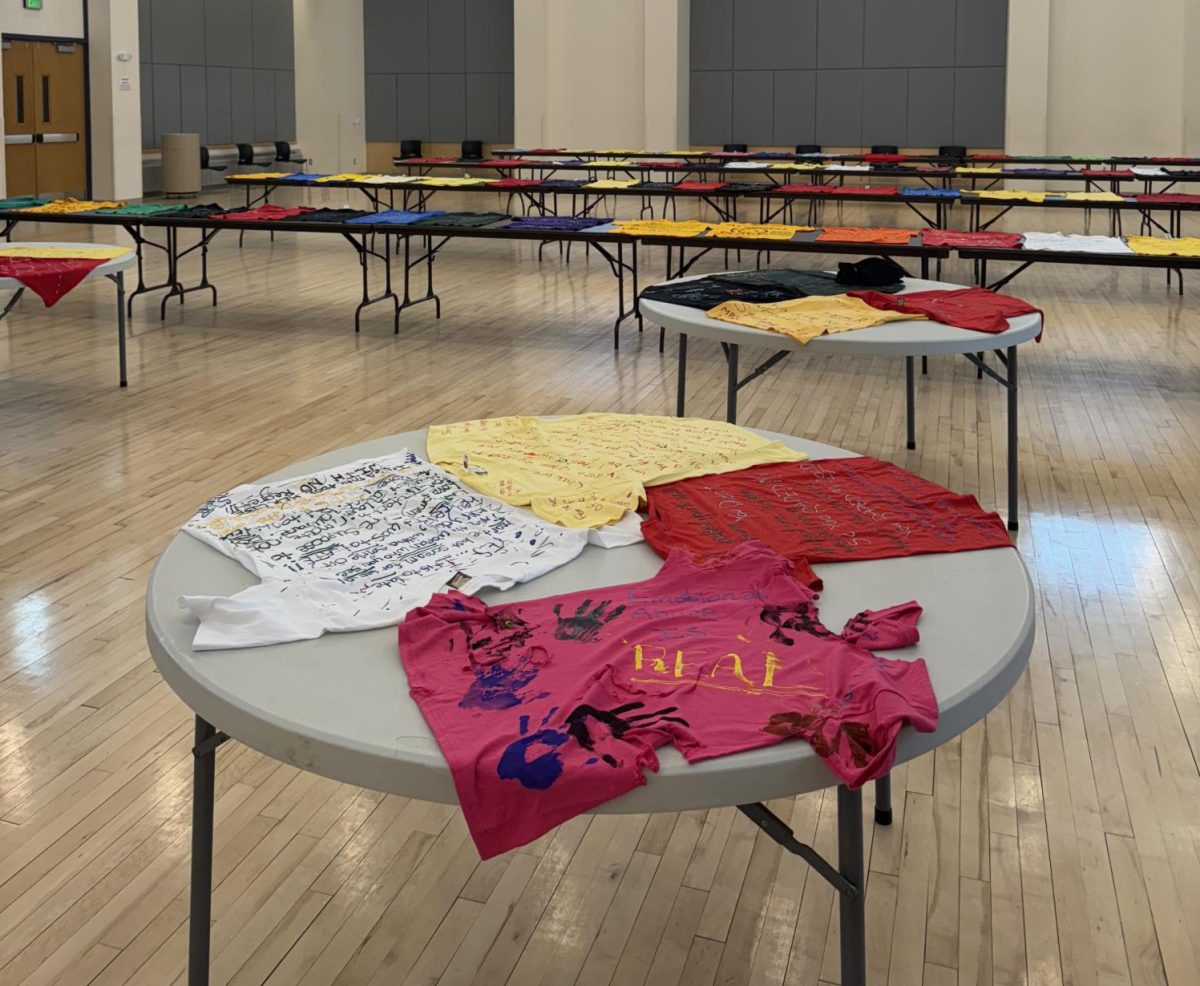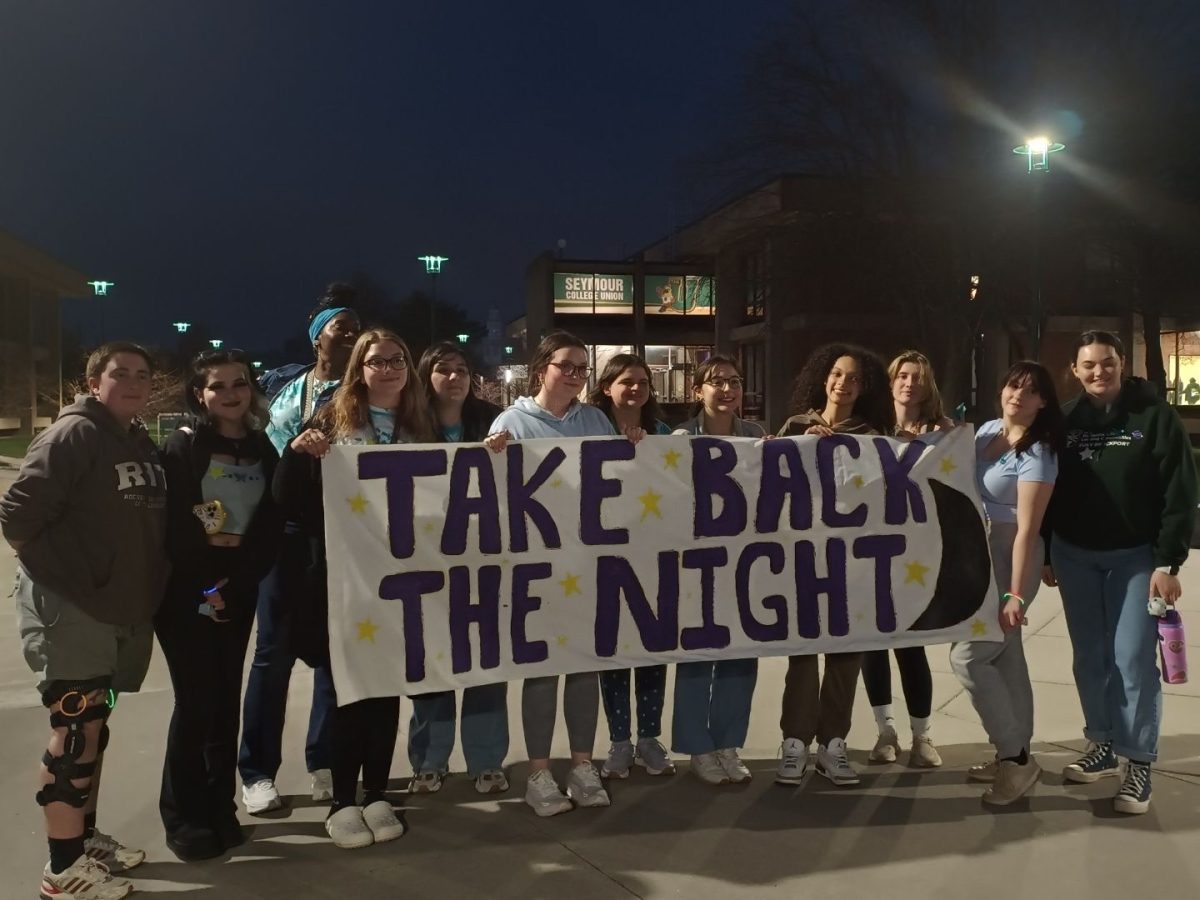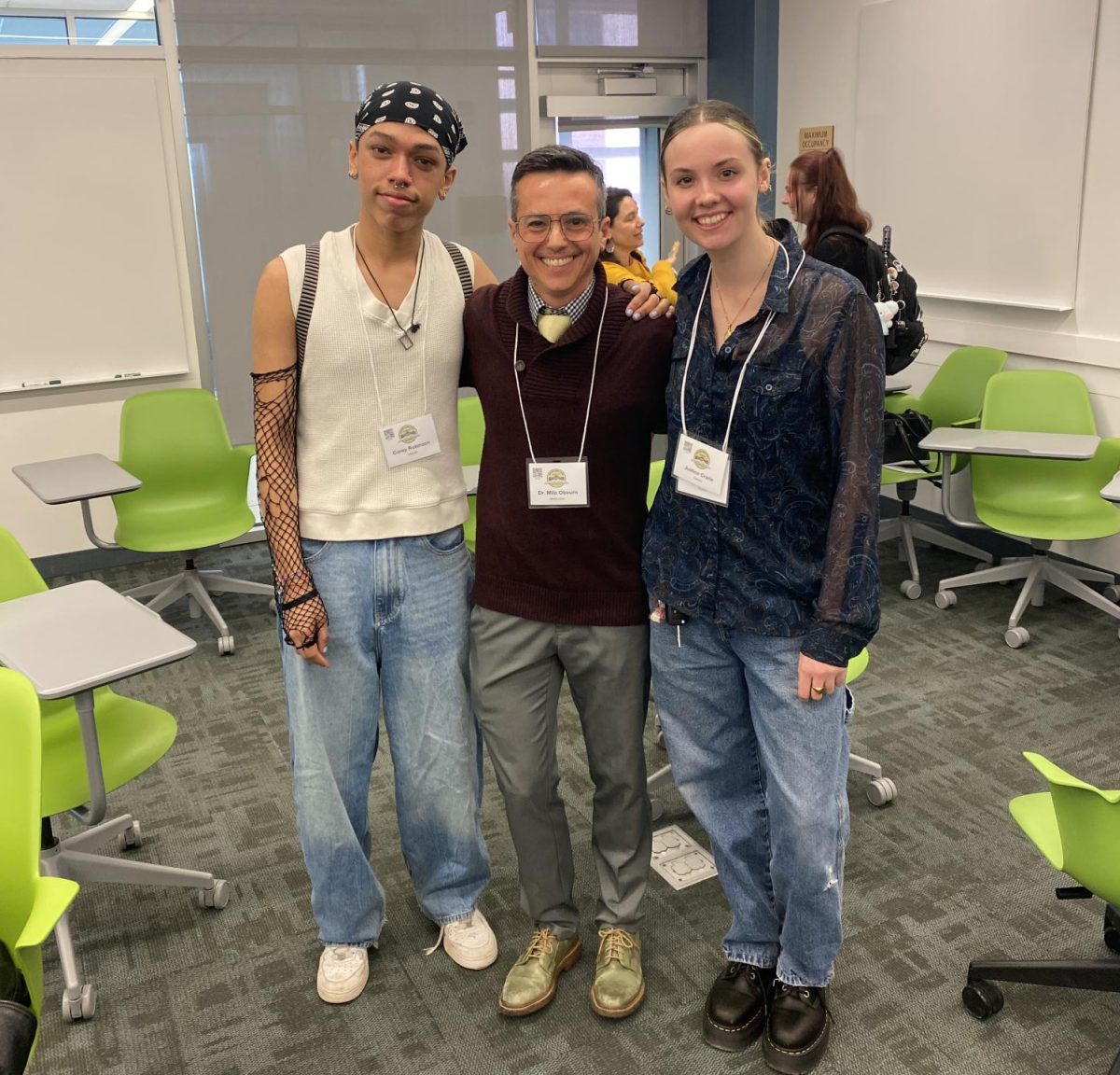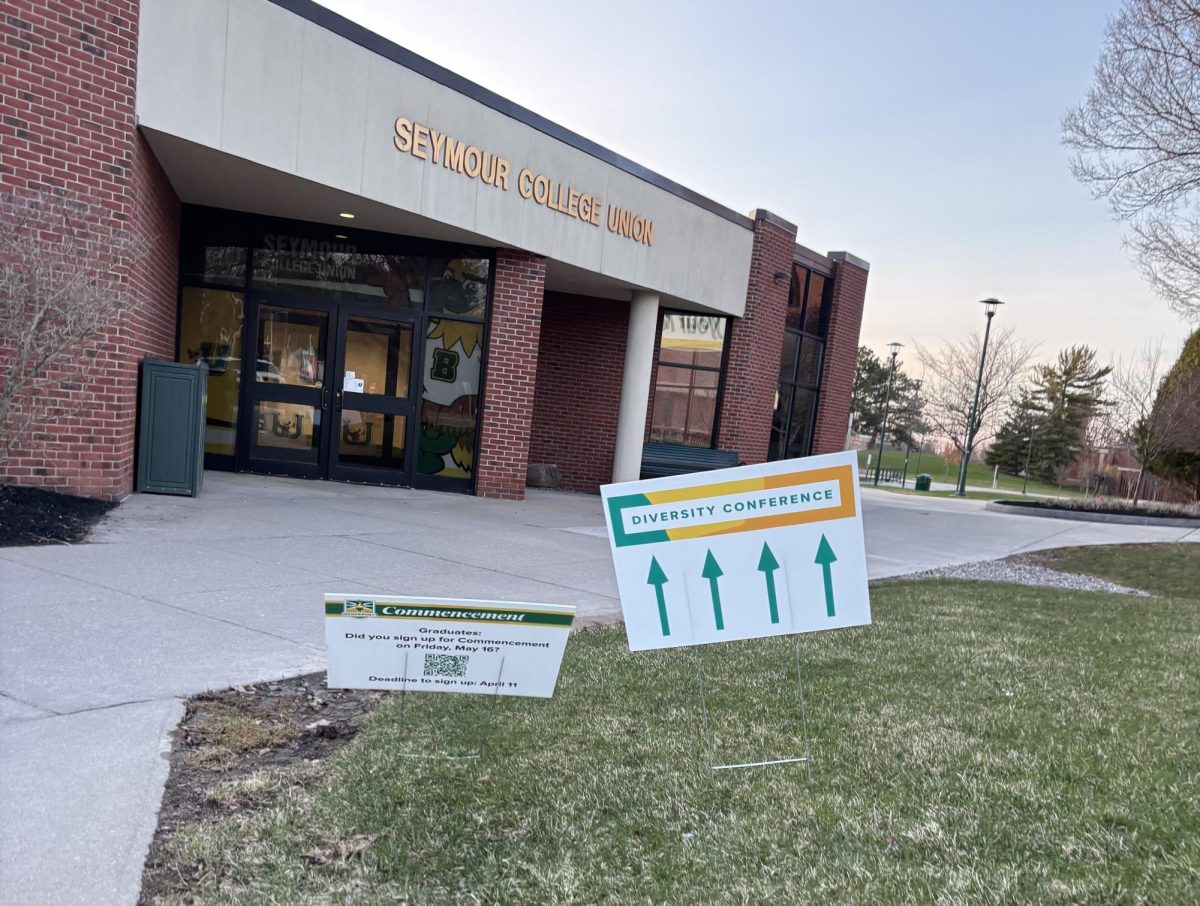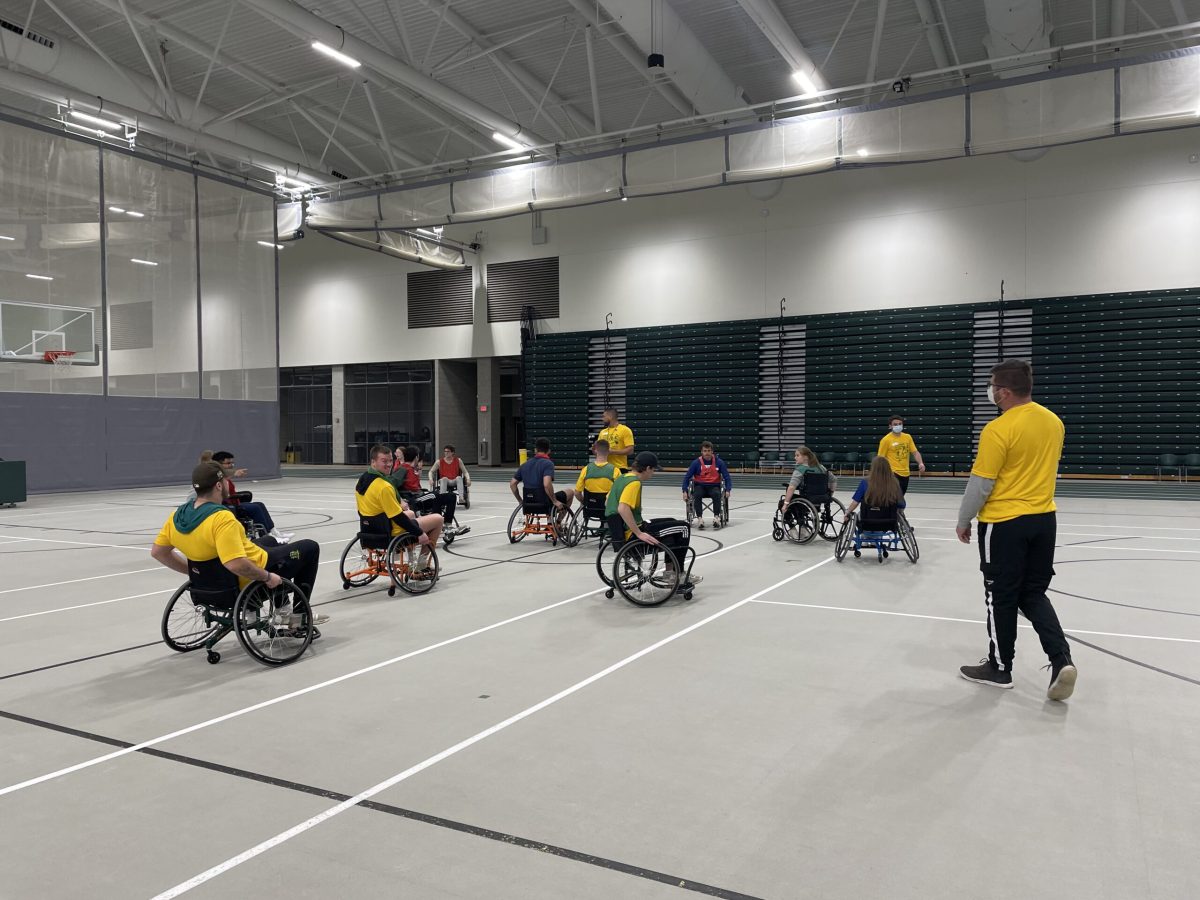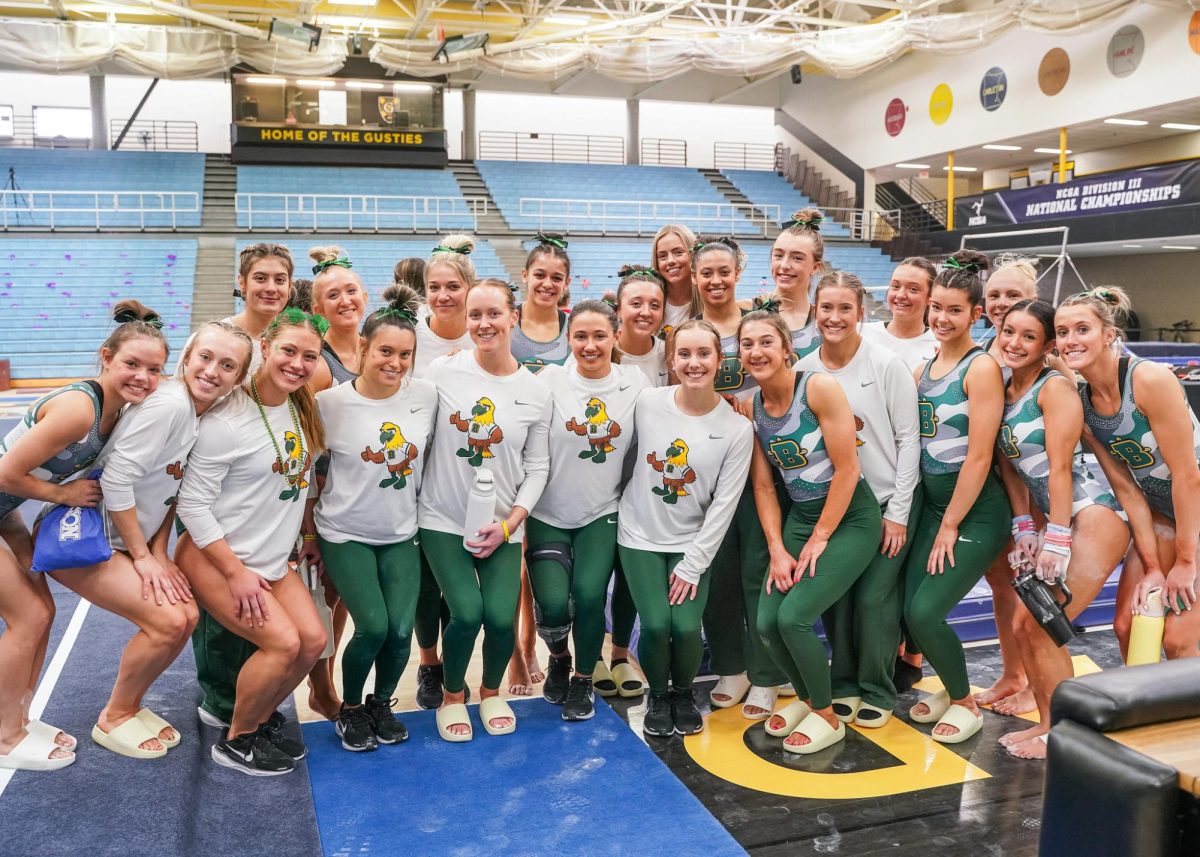Lauren Lieberman, Ph.D., is a distinguished service professor at SUNY Brockport in the kinesiology department. She teaches adaptive physical education, and on Nov. 15, the Paralympic Sports Festival was her students’ final project. Lieberman began planning this event four years ago, but the COVID-19 pandemic derailed her plans.
The Paralympic Sports Festival was four hours. Participants could watch and play wheelchair rugby, wheelchair basketball, sled hockey, blind soccer, goalball, track and field and sitting volleyball. Members of the class and professional paralympic athletes played with and taught spectators how to play the different disability sports.
“How are kids going to learn about disability sports if teachers don’t teach it?” Lieberman said. “This class is called adaptive physical activity in sport, and we try to teach them how to teach disability sport when they’re teaching elementary, middle and high school.”
Rogan Bonner is a student in Lieberman’s adaptive activity class. Bonner is a veteran and has a sister with special needs, so he’s always been involved with disability sports. Bonner spoke on the significance and what it means to him to be part of Brockport’s first ever Paralympic sports festival.
“It’s extremely important because for anybody to be aware, there has to be someone that advocates,” Bonner said. “Even though we may not have a disability, we can still advocate for those who do. We’re taking this into the field with us so that even if I don’t have a child with disabilities in my class, that doesn’t mean that I can’t teach the same sport and show how to play it for people with disabilities. You can play volleyball regular, but there’s also no reason why the class can’t sit down sometimes and play sitting volleyball. So, it’s important because it just brings awareness to everyone; you teach one person and then that spreads to the next.”
Bringing awareness to disability sport was one of the main goals of Brockport’s paralympic sports festival. Lieberman says without adaptive learning classes like the one she’s teaching, people are rarely introduced to disability sport. About halfway through the event, everyone took a break from the sports to eat and listen to speeches from paralympic athletes and students of the class. Martha Ruether was the first speaker of the evening. Ruether is a two-time Paralympian in swimming; she competed in both the Rio 2016 and the Tokyo 2020 Paralympic games. Ruether was born prematurely causing her vision loss, she has no vision in her left eye and limited vision in her right eye. Ruether shared her story of how she became a paralympic athlete which included Brockport introducing her to the idea after attending Camp Abilities in 2007. Toward the end of her speech, Ruether spoke about how the Brockport community does a great job of accommodating those with disabilities.
“After Rio, I got to come back here to Brockport where I finished my undergraduate degree so go Golden Eagles,” Ruether said. “I got to swim here for two years, and it was such a wonderful experience. I got to learn so much about just being a part of a team. It was the first time where I really felt accepted on a team that I was a part of outside of the Paralympics so that was really cool, and they respected what I did. I think that Brockport really fosters a great community for anyone who is disabled or wants to be involved with sports.”
Ryan Chalmers was the next guest speaker. Chalmers was born with spina bifida, a condition in which a baby’s spinal cord fails to develop properly. He began competing in adaptive sports at the age of 8-years-old. Chalmers played wheelchair basketball growing up but eventually prioritized para track and field where he would go on to represent Team USA in the London 2012 Paralympic games. Chalmers says that it’s frustrating to often see Paralympians overlooked as athletes.
“If you’ve ever watched the Olympics and the Paralympics, you’ll see a distinct separation in how they showcase their athletes,” Chalmers said. “The Olympic athletes are the best athletes in the world, the paralympic athletes have always been shown as the inspiration, what’s their story? That’s always the first question. What made London so enjoyable is how the media spun it; it wasn’t about the story first, it was about the athlete. It was about the four or five hours a day that you trained. You wake up, train, take a break, see your athletic trainer and train again. Being a paralympic athlete is no different from being an Olympic athlete.”
If anyone would like to learn more about disability sports, all of the students’ lesson plans are available here. Additionally, the Rochester Rookies practice in the SERC on Saturdays to teach people about wheelchair track and field and Lieberman will host Camp Abilities again this summer which teaches blind Paralympic sports for kids who are visually impaired.



